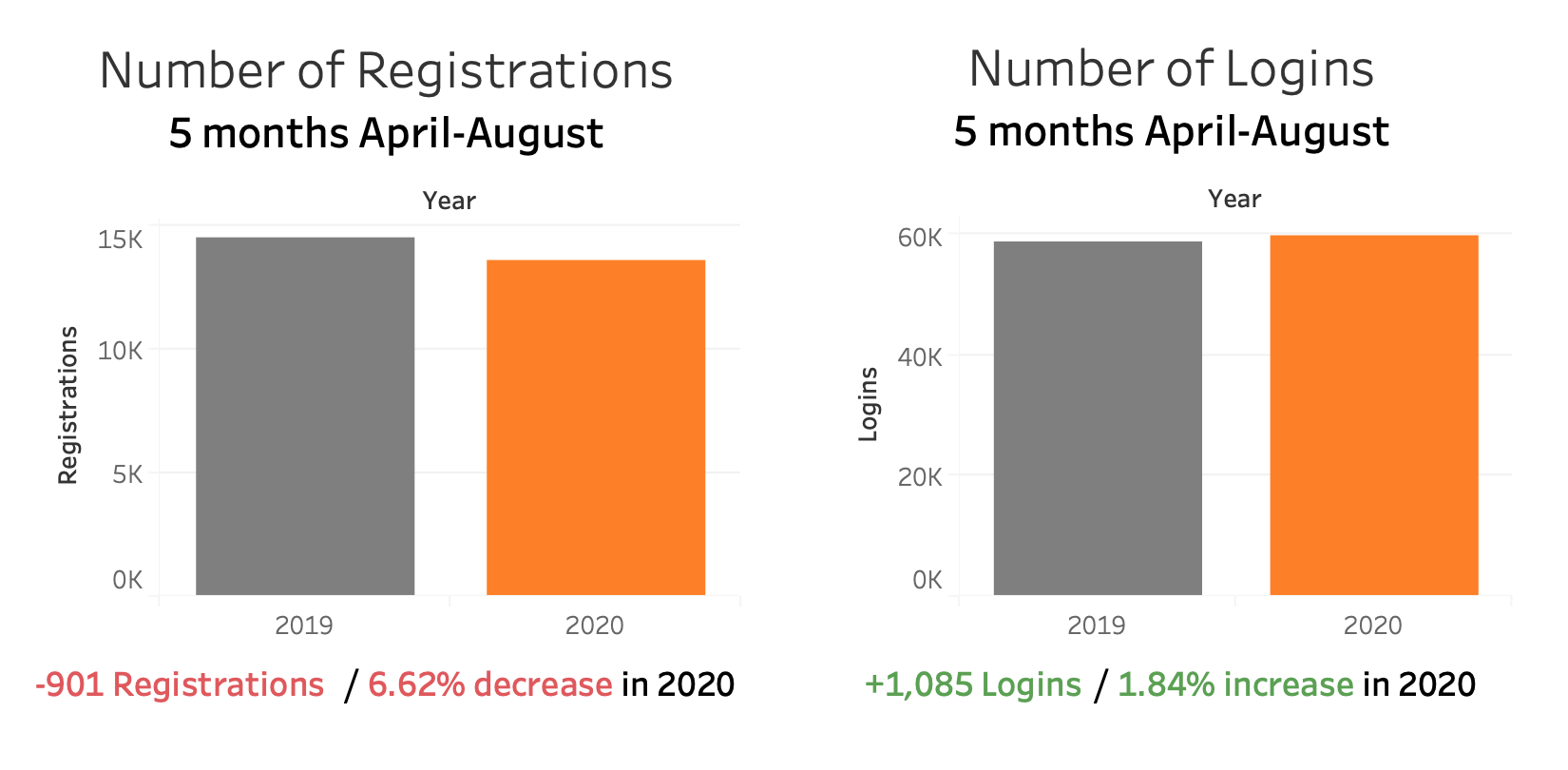A study of 144,933 users, April-August 2020 vs 2019
Baseline user adoption holds steady whilst engagement and interaction behaviours increase 45-126%
Analysis Summary
With the UK and much of the rest of the world under government-imposed pandemic restrictions, the impact on traditional communication dynamics across work, education and social interactions has been significant. This analysis contrasts the changing behaviours of users on Aluminati’s higher education platforms, comparing the period of April-August 2020 with the same period the year before.
Considerations
The UK officially went into lockdown at the end of March 2020. Our clients being predominantly UK based, we evaluated our dataset between April and August – the last month before the start of the 2020-21 academic year, thus eliminating the seasonal start-of-term effects. This analysis also controls for the substantial early-growth activity that results from new services launches by excluding all services that launched in either 2019 or 2020. The data remaining reflects mature services with typically steady year-to-year metrics with any change observed being likely to reflect from the unique pandemic situation in 2020.
Baseline User Metrics
These metrics indicate baseline user interest in the service itself, rather than impactful community behaviours that occur once within the platform. Both metrics held fairly steady year on year. With the loss of the summer term, we had expected to see a more significant dip in registrations given the disruption to key marketing opportunities at and around graduation ceremonies.
 Engagement Metrics
Engagement Metrics
These metrics reflect the more significant interactions between users: Volunteering to be a mentor, requesting a mentor and exchanging messages. Significant increases were observed across all interactions.

Findings
Despite the difficult summer for 2020 graduates, interest in the engagement platforms held mostly steady with only a 6.62% dip in new registrations year on year and login rates holding steady. There does appear to have been a significant influence on engagement activity with higher rates of volunteering, higher rates of mentor utilisation and more messaging activity within those newly formed relationships.
This higher propensity for engagement may be down to the personal effects of the pandemic restrictions on students and alumni, in particular the loss of other avenues of connection and communication. One should also consider the effects of increased activity by universities in promoting online channels such as the Aluminate platform, although if this was significant it should probably have reflected in higher sign-up rates.
It seems reasonable therefore to attribute an intrinsic reason for this change in engagement – that being that digital communications spaces are fulfilling an increased need by our platform members.
You may wish to consider if your digital solutions are fulfilling this need for members of your institution. If not, perhaps you would like to have a look at the platform that generated the above engagement statistics, our Aluminate Community Builder.
Another Aluminati White Paper you might like: The Effects of Mentoring on Employability





